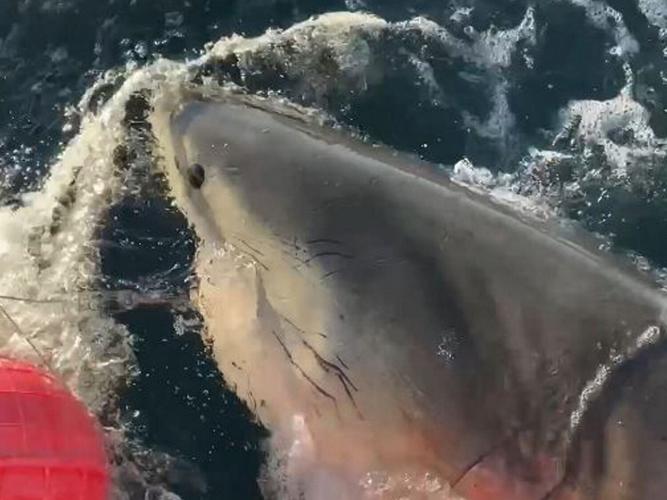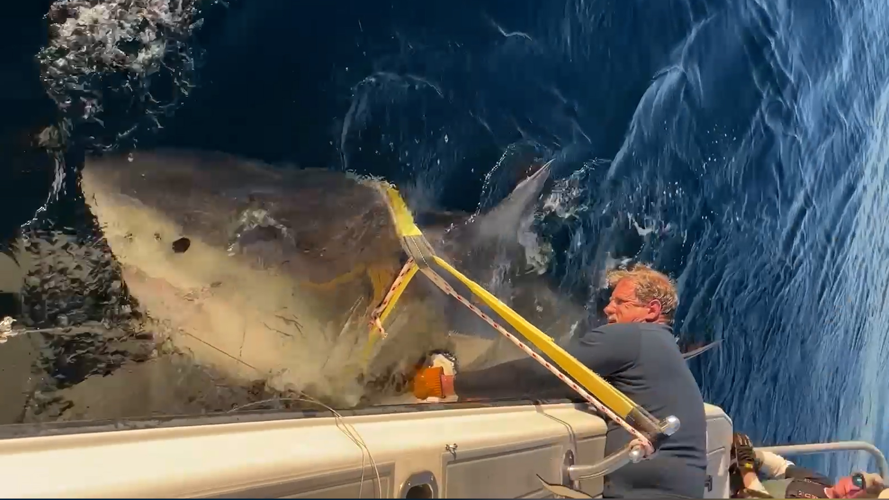By Michael Lee Simpson
The biggest great white shark ever recorded by researchers in the Atlantic is on the move, towards a popular holiday hotspot in the US.
Contender, the 14-foot beast, was tagged in the North Atlantic by OCEARCH in January, a non-profit organization that conducts research on large marine animals, 45 miles off the Florida-Georgia coast, off Jacksonville.
And after going off the radar for nearly a month - the tracker only transmits a locating signal when the shark's dorsal fin is briefly exposed above the water's surface - last week (June 7), it surfaced north, off Pamlico Sound in North Carolina.
The beast appears to have made a dart for the north over the last few weeks.
Measuring around 1,653lbs, Contender is estimated to be around 30 years old.

Contender, the 14-foot great white shark. (OCEARCH via SWNS)
This stopover is believed to be a critical feeding period, allowing him to build energy reserves for what may be a journey of 1,000 miles or more.
Dr. Harley Newton, OCEARCH's chief scientist and veterinarian, from Ponte Vedra, Florida, explained the behavior of the mammoth creatures.
She said: "This time of year, white sharks are starting their late spring/early summer migration (16 May to 30 June), moving from their southern overwintering area to their summer/fall foraging areas in the northeastern US and Atlantic Canada."
The tagging involved carefully capturing Contender alongside the research vessel, collecting biological samples, and attaching a SPOT satellite tag to its dorsal fin.

(OCEARCH via SWNS)
This tag transmits real-time GPS data whenever he surfaces, enabling researchers and the public to track his movements live via OCEARCH's global shark tracker.
Dr. Newton said: "We often see the sharks on our global shark tracker spend a period of time off the Outer Banks right before they move north, which is what white shark Contender appears to be doing.
"This may be due to rich food resources in the region and would serve as a time to feed and prepare before what may be a journey of 1,000 miles or more."
Contenders' migration is closely monitored to advance scientific research and promote shark conservation.
Great white sharks play a vital role in marine ecosystems by regulating prey populations but face threats from overfishing, habitat loss, and climate change.
Data from Contender and other tagged sharks inform conservation efforts and help protect critical habitats.










